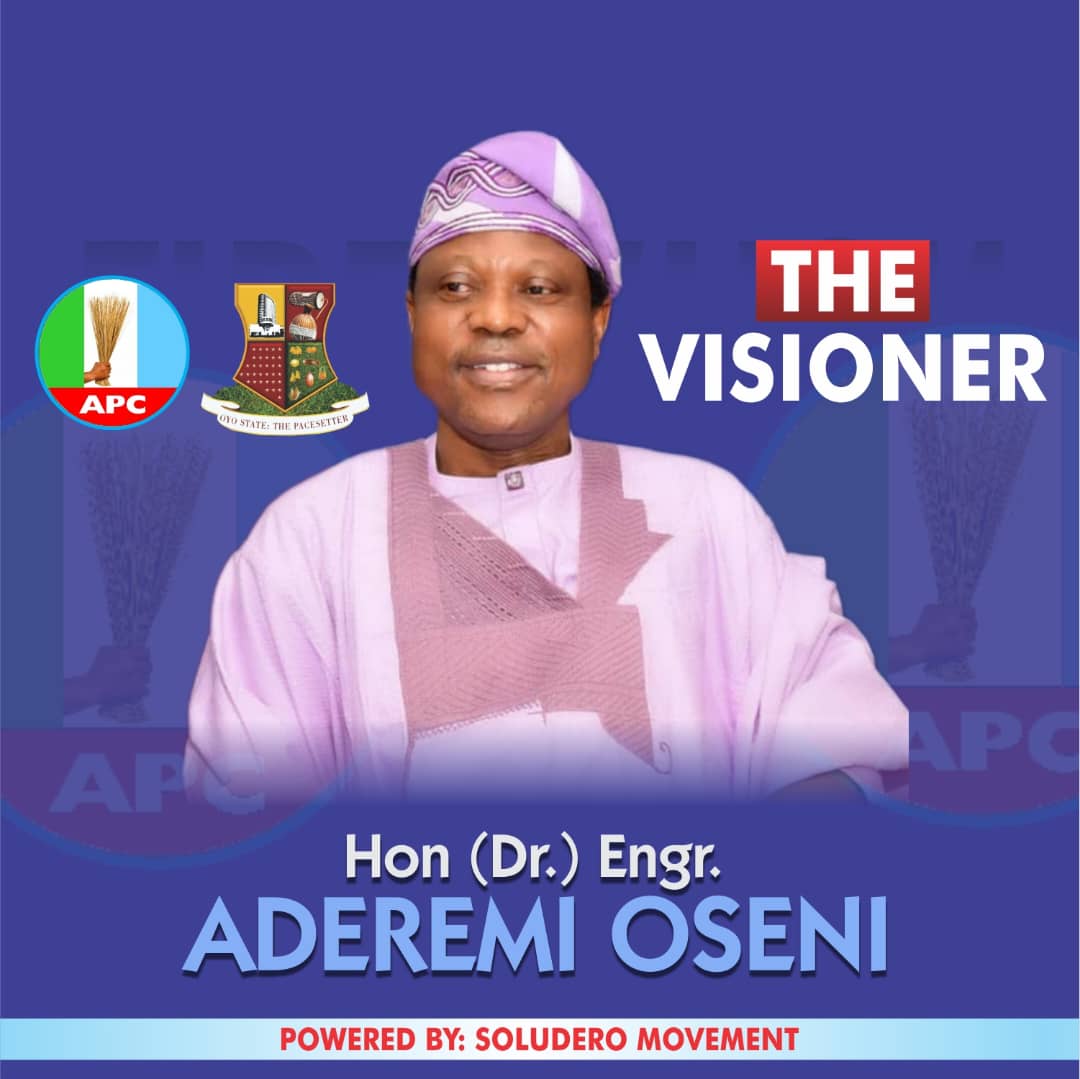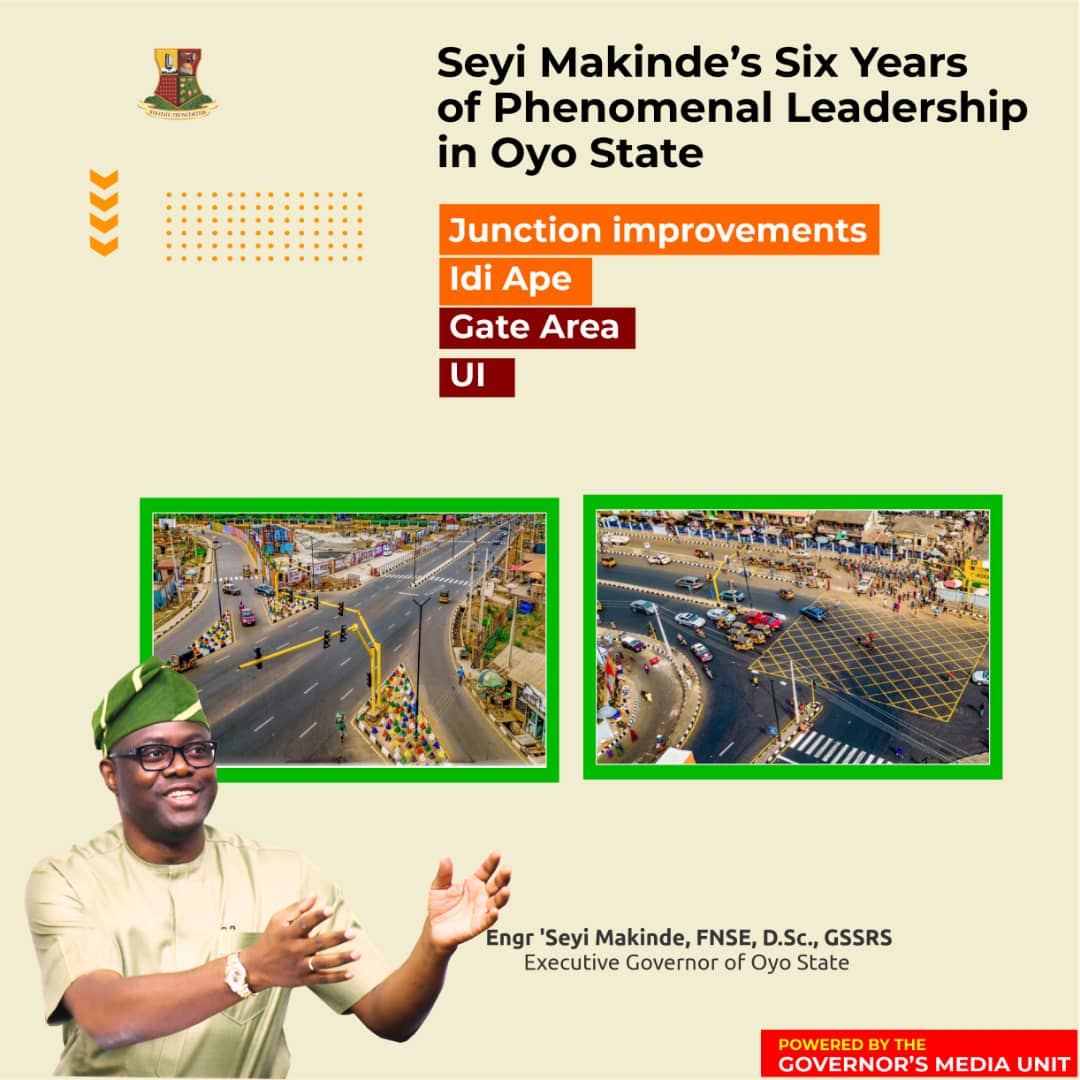History is like a torchlight, the sense of which helps us illuminate our paths in darkness so that we find our way into light. This is exactly the case when we guide ourselves with knowledge of past events especially such undesirable past we may not wish for to be repeated.
Between 1999 and 2003 when the great late Lam Adesina, former governor of Oyo state under the Alliance for Democracy (AD), the state witnessed a dramatic development in the area of education under his free education policy, as well as infrastructures and economy largely because the state like all other states in Nigeria just returned to democratic system of government away from military regime.

Despite Lam Adesina’s sterling performance in some critical sectors of the economy, his desire to return for second term of office was shortlived after losing the 2003 governorship election to Senator Adewolu Ladoja of the Peoples Democratic Party (PDP).
Ladoja operated an impressive government at least according to workers in the state and local government civil services, and the economic climate continued in Oyo state was doing fairly well because Ladoja’s administration created employment on large scale for local contractors which increased velocity of cash within the system and reduced capital flight in the economy.

Ladoja remained the darling of most residents in the state until 2006, and would probably have been the first governor to break the second term jinx if not for his wrong impeachment for stepping on toes of some powers that be. Unfortunately for Ladoja, it was too late when the Supreme Court voided his impeachment and reinstated him as governor to still emerge as 2007 PDP candidate because PDP primaries were already concluded and Otunba Alao Akala was already PDP governorship candidate for the 2007 general elections leaving Ladoja to only serve out remainder of his term.
Anyway, I beg for pardon, for going far back memory lane, it was merely to establish one fact, and that is a good performance in government alone does not guarantee a return for a second term of office for any governor who miscalculates and loses touch with certain political realities.

Fastforward to 2014, by the third year of late Ajimobi’s administration, it was almost certain that despite his sterling performance especially in the area of security and infrastructures, he was going to lose the election but with Ladoja still eyeing a return to office as governor and his political clout gaining serious momentum which could be said to have attained its peak under Accord party, Ladoja was already been touted as the new governor in waiting as Accord party continued to welcomed new members from both Ajimobi’s APC and the PDP into its fold.
Ibadan, being a big if not the major stakeholder among other zones in Oyo state (based on its demography) was solidly behind Ladoja to return and it was made manifested in the governorship election result of 2015 general election.
Ajimobi, whose relationship with most Ibadan kingmakers and political bigwigs has since strayed due to Ajimobi’s perceived arrogance and way of addressing them has led to many of the Ibadan kingmakers throwing their support for Ladoja who was already a Chief in the Olubadan-in Council.
Being a very intelligent and clever person, Ajimobi quickly changed his political calculation which many have described as the ‘joker’, and switched to Oke-ogun zone where he won with large votes that returned him for second term of office.
Two critical lessons that Makinde must be deduce from both 2011 and 2015 are, that he like Ajimobi in 2011, has set an all time election record in the state winning the 2019 guber poll with over five hundred thousand votes.
That a governor performed well while in office is never a free or automatic ticket for his return for a second term at least this was evident in the 2015 governorship election result where Ajimobi narrowly emerged winner with 327,310 (three hundred and twenty seven thousand three hundred and ten) votes, indicating a difference of 93, 542 (ninety three thousand five hundred and forty two) votes compared to 2011 when Ajimobi’s all time record put him ahead of Akala with merely 33, 720 votes.
A politically clever governor must know where to draw the line between politics and governance at any given time and government is a public administration not corporate business management, incidentally, both politics and governance are intertwined.
Makinde must realize one key fact that the 2019 election swung his direction after his several attempts at becoming senator and governor, not because the people disliked APC, at least it was evident in the amount of votes recorded by the APC governorship candidate in the 2019 general election, Chief Adebayo Adelabu (penkelemes) who hitherto, was by then, a first timer in the guber contest, or he (Makinde) was more politically popular than any either Chief Ladoja or Senator Femi Lanlehin.
The advantage Makinde had for such resolution in his favour was because of PDP party structure which is more rooted and reached all nooks and crannies of the state otherwise any other candidate on the PDP ticket at the time of the coalition pact could have as well been the beneficiary of the arrangements in 2019.
In fact, a sound and well informed political calculation by Seyi Makinde’s team must put a ‘penkelemes’ into serious consideration as an emerging political force in the opposition for emerging second (even though the 2019 guber election was adjudged to be a two horse race) as a strong contender in the event he emerge his party’s governorship flagbearer by 2023.
Makinde must understand that the 2019 governorship election was a product of divine arrangement (agree or disagree) because if the coalition pact between the him and other political parties involved in the coalition didn’t happen, it was unlikely for Seyi Makinde to have emerged winner of the ruling party today.
It is therefore, or perhaps, safe to say that the 2019 coalition pact reached by Makinde and other political parties was the stroke that broke the Carmel’s back. It was also largely due to Makinde’s goodwill after past electoral losses that he remained consistent in deploying his wealth and afluence into philanthropy over the years that earned him the trust of other political parties to lead the 2019 race.
The Governor must realize that such pact may not have a part two in subsequent elections and if he could not use that same goodwill to mend fences and rebuild his own party into a formidable and undefeatable one, he is likely headed the way of past governors who performed creditably well but could not return for second term of office.
GSM as he fondly called, more understand the three classes of the society especially Oyo state, which are the civil servants, the politicians, and the masses. The civil servants are the state workforce with less than 5 percent of the total electoral population, the politicians are the ones that mobilize both the civil servants and the masses for elections therefore, any wise governor will know how not to disregard influence of the political class.
The masses will always listen more to the politicians because they are the ones they freely and easily mix up with in the society. The masses will tend to believe the politicians more based on the notion that they are closer to people in government and are likely to know certain facts which could guide them in their choices of who becomes what.
Government is very complex, it is not about the influence and power, and Makinde must as a matter of urgency come to term with this and rejig his cabinet in a robust manner that will give room for well experienced politicians to help him achieve his blueprint. It is not enough to have a fine template or blueprint, capable hands with years of experience in running government are needed to bring such template or blueprint to fruition.
The distance between 2023 and now is just one more Christmas away. While other political parties in the state, especially the APC are setting differences aside to mend fences and rebuild their parties, PDP in the state seemed unfazed and seemed not to have learned from its past. Some may attribute the internal wrangling that has created disaffection among PDP stalwarts in the state (which the party has denied many times) to the disposition of Governor Makinde to party affairs.
It is therefore, imperative for Governor Makinde to know when to play serious politics, give prominence to the politicians who worked assiduously for his election success in his government and also know when to harmonize political activities with governance.
Either ways, the clock is ticking very fast and by May 29th, Makinde will officially have spent two years in office which is likely to form the basis for political onslaught from opposition parties by way of intensed criticism and perhaps renewed propaganda.

